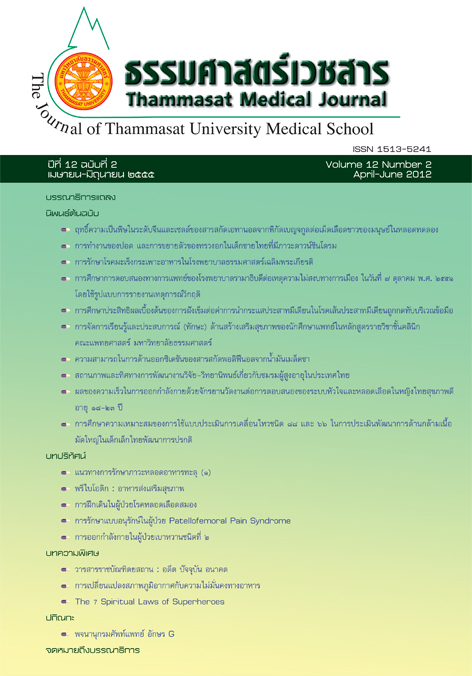Pulmonary Function and Chest Expansion in Thai Boys with Down Syndrome
Keywords:
Down syndrome, Pulmonary function, Chest expansionAbstract
Pulmonary problems in children with Down syndrome may contribute to decreased level of physical fitness, compared to healthy children. Pulmonary function in children with Down syndrome has been little known. Inadequate amount of oxygen or air volume during inspiration and expiration measured by using a handheld spirometer and limitation of chest expansion may be used to indicate the problems of pulmonary function in children with Down syndrome. Force expiratory volume in a second (FEV1) and chest expansion of 10 boys with Down syndrome was significantly different from those of 10 healthy boys. The trend of force vital volume capacity (FVC) was also reduced in boys with Down syndrome. These findings might be the result of weakness of primary and accessory respiratory muscles, particularly abdominal muscles, and narrow respiratory airway. Medical scientists and health-related staffs who work with children with Down syndrome should also focus on improving their respiratory status and preventing possible pulmonary infection. Pulmonary function and chest expansion test have potential to be an initial indicator of pulmonary problems in people with Down syndrome at a young age.
Key words: Down syndrome, Pulmonary function, Chest expansion



